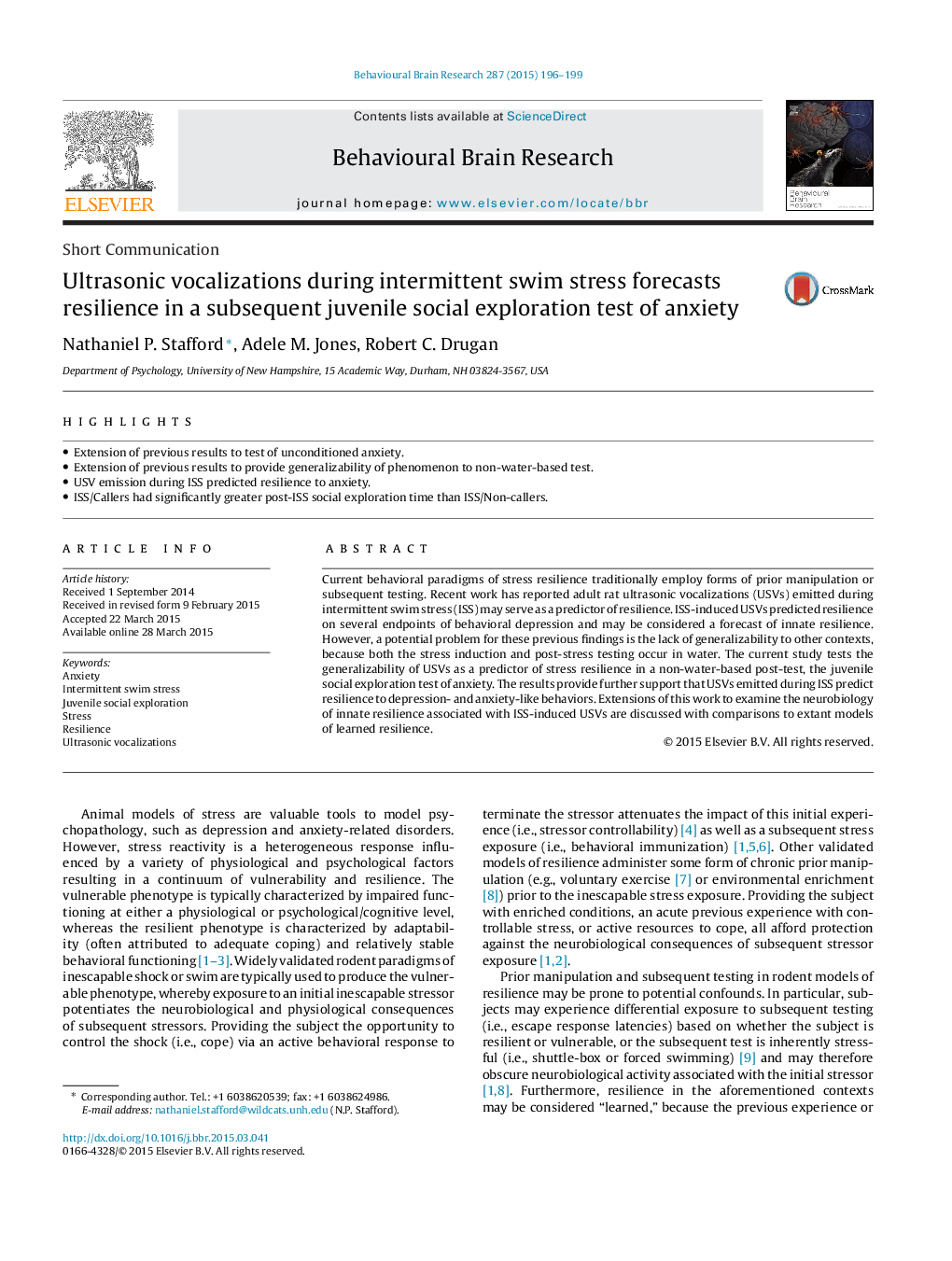| Article ID | Journal | Published Year | Pages | File Type |
|---|---|---|---|---|
| 6256944 | Behavioural Brain Research | 2015 | 4 Pages |
â¢Extension of previous results to test of unconditioned anxiety.â¢Extension of previous results to provide generalizability of phenomenon to non-water-based test.â¢USV emission during ISS predicted resilience to anxiety.â¢ISS/Callers had significantly greater post-ISS social exploration time than ISS/Non-callers.
Current behavioral paradigms of stress resilience traditionally employ forms of prior manipulation or subsequent testing. Recent work has reported adult rat ultrasonic vocalizations (USVs) emitted during intermittent swim stress (ISS) may serve as a predictor of resilience. ISS-induced USVs predicted resilience on several endpoints of behavioral depression and may be considered a forecast of innate resilience. However, a potential problem for these previous findings is the lack of generalizability to other contexts, because both the stress induction and post-stress testing occur in water. The current study tests the generalizability of USVs as a predictor of stress resilience in a non-water-based post-test, the juvenile social exploration test of anxiety. The results provide further support that USVs emitted during ISS predict resilience to depression- and anxiety-like behaviors. Extensions of this work to examine the neurobiology of innate resilience associated with ISS-induced USVs are discussed with comparisons to extant models of learned resilience.
